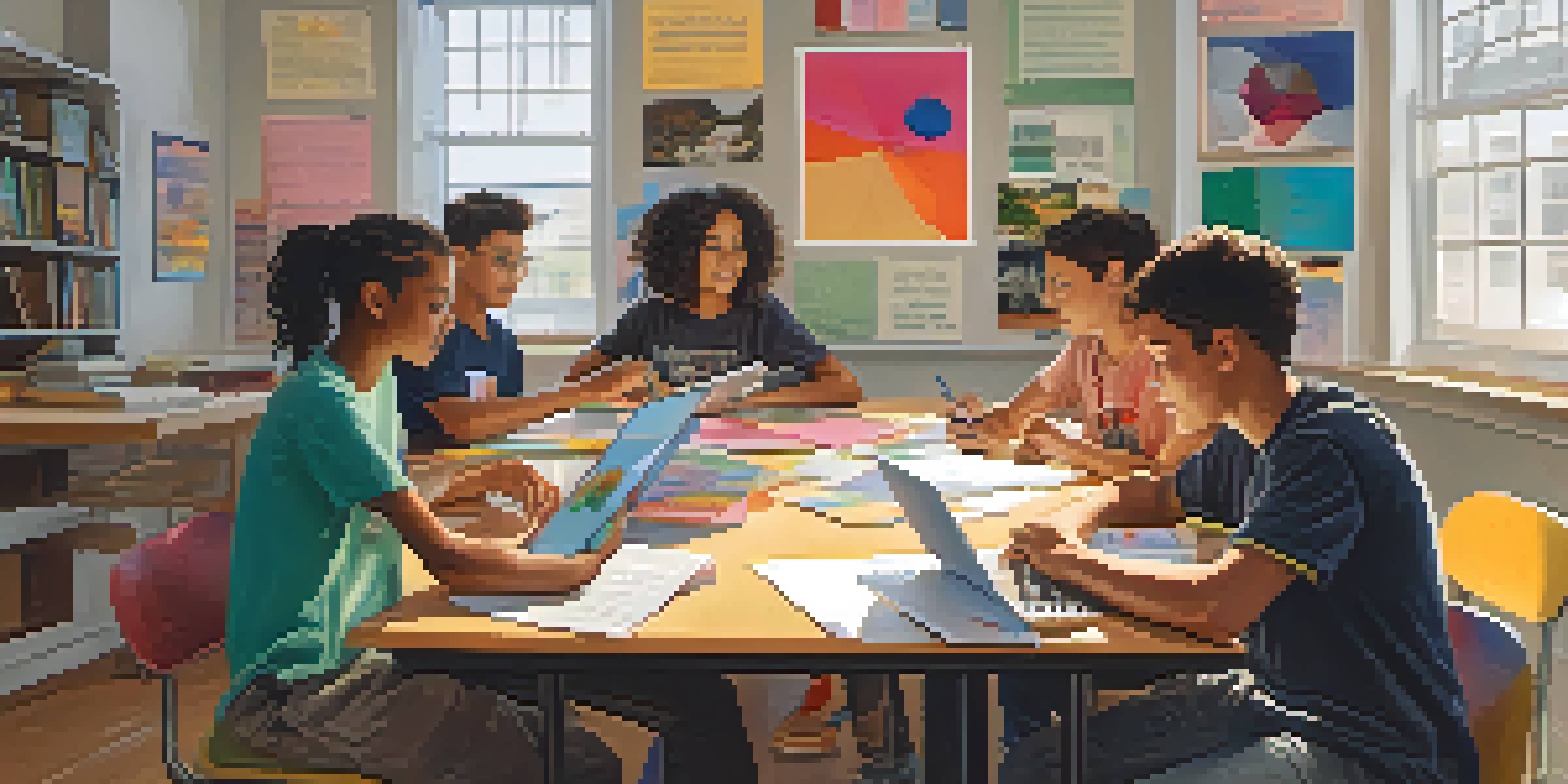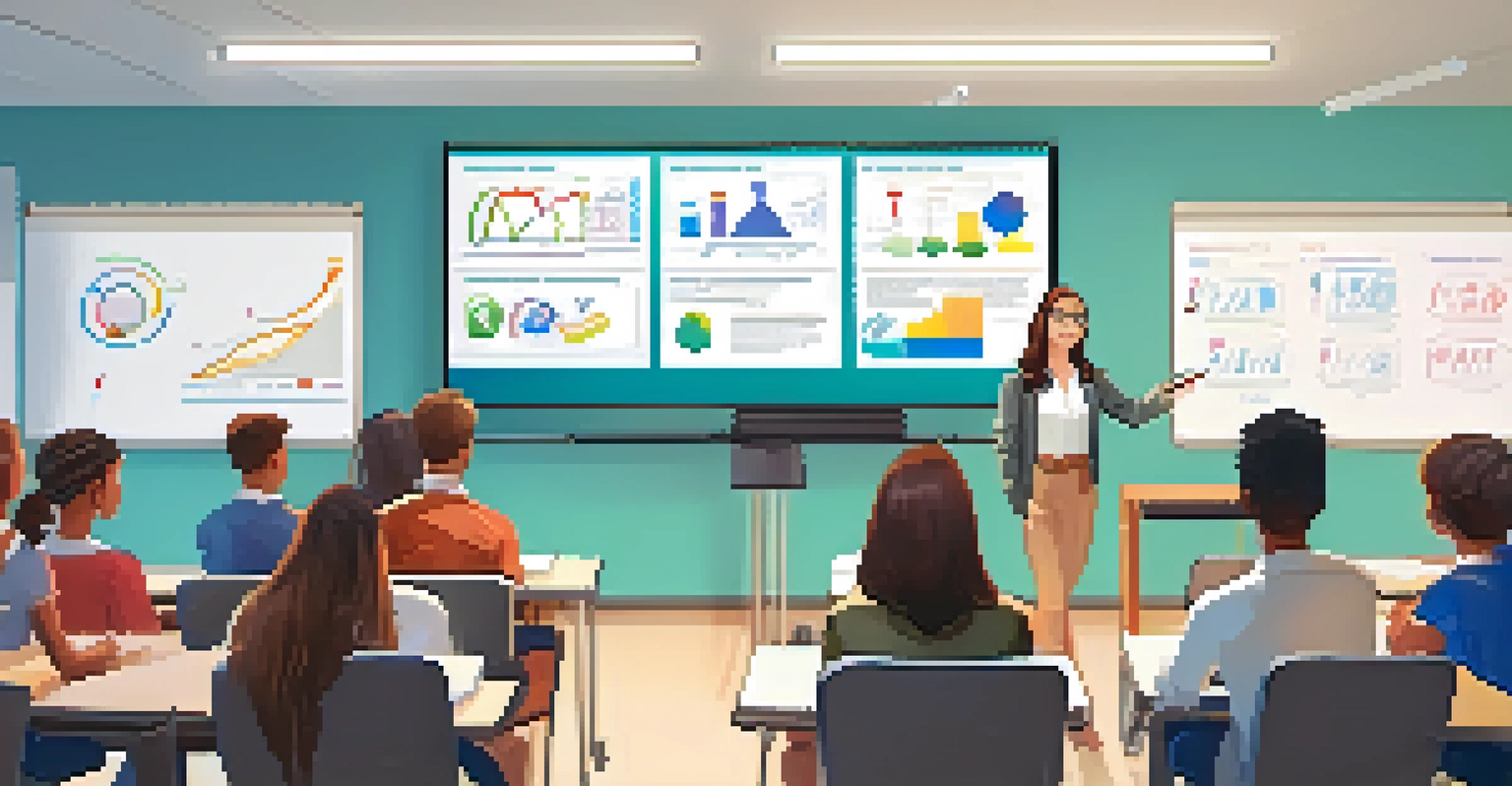The Importance of Digital Literacy for Remote Learning

What is Digital Literacy and Why Does It Matter?
Digital literacy refers to the ability to effectively use technology to access, manage, and communicate information. It's not just about knowing how to use a computer; it encompasses understanding the internet, software applications, and online safety. In a world increasingly reliant on digital tools, being digitally literate is essential for navigating daily life, especially in education.
Digital literacy is not just about knowing how to use a computer; it’s about understanding how to communicate and collaborate online effectively.
In the context of remote learning, digital literacy becomes even more crucial. Students need to engage with various online platforms, participate in virtual discussions, and complete assignments using digital tools. Without a solid grasp of these skills, students may struggle to keep up with their peers, leading to educational disparities.
Moreover, digital literacy fosters critical thinking and problem-solving skills. As students learn to discern credible information from unreliable sources, they become more informed citizens. This ability not only benefits their educational journey but also prepares them for the complexities of the modern workforce.
The Role of Digital Literacy in Remote Learning Success
Successful remote learning hinges on the student's ability to navigate online environments confidently. Digital literacy equips students with the skills needed to access learning materials, interact with instructors, and collaborate with peers. For instance, understanding how to use video conferencing tools and learning management systems can significantly enhance a student's educational experience.

Additionally, digital literacy allows for a more personalized learning experience. Students who are comfortable using technology can explore resources beyond their curriculum, engage with interactive content, and seek help when needed. This autonomy fosters a sense of ownership over their learning, leading to increased motivation and engagement.
Digital Literacy Enhances Learning
Being digitally literate is crucial for students to effectively engage in remote learning environments and access necessary educational resources.
Furthermore, as remote learning often relies on self-directed study, digital literacy becomes a key factor in time management and organization. Students with strong digital skills can efficiently use tools for scheduling, note-taking, and tracking assignments, ultimately leading to better academic performance.
Challenges Faced Without Digital Literacy
When students lack digital literacy skills, they face numerous challenges in a remote learning environment. For example, struggling to navigate online platforms can lead to frustration and disengagement. This not only affects their academic performance but can also impact their mental well-being, as they feel left behind.
In the digital age, literacy has become a complex set of skills that requires ongoing learning and adaptation.
Moreover, the absence of digital skills can hinder communication with teachers and peers. Students may find it difficult to ask questions or collaborate on projects, which can result in isolation and decreased learning outcomes. In a digital classroom, effective communication relies heavily on one's ability to use technology.
Finally, students who are not digitally literate may miss out on valuable resources and opportunities for enrichment. They may not be aware of online tutorials, forums, or learning communities that could enhance their understanding of subjects. This gap can create a widening divide in educational equity, as those with digital skills continue to thrive.
Building Digital Literacy in Students
Educators play a vital role in fostering digital literacy among students. By incorporating technology-focused lessons into the curriculum, teachers can help students develop essential skills. For instance, lessons on online research techniques or digital presentation tools can empower students to utilize technology effectively.
Additionally, providing students with opportunities for hands-on practice is crucial. Educators can create assignments that require the use of various digital tools, giving students the chance to explore and become comfortable with different technologies. This experiential learning approach can significantly boost their confidence.
Challenges Without Digital Skills
Students lacking digital literacy face significant obstacles, including frustration, isolation, and missed educational opportunities.
Moreover, collaborating with parents and guardians can further enhance digital literacy initiatives. Schools can offer workshops or resources that equip families with the knowledge to support their children's learning at home. This partnership can create a supportive learning environment, both at school and at home.
The Importance of Digital Safety and Ethics
As students become more digitally literate, understanding digital safety and ethics is paramount. With increased access to online platforms comes the responsibility of navigating them safely. Teaching students about online privacy, cyberbullying, and responsible social media use is essential to their overall digital education.
Moreover, instilling a sense of digital citizenship is crucial for fostering a respectful online community. Students should learn how their online actions can impact others and the importance of treating people with kindness and respect in digital interactions. This understanding can help cultivate a positive online environment.
Finally, discussions around digital ethics can empower students to make informed choices. By exploring topics such as copyright, plagiarism, and the implications of sharing personal information, students can develop a strong moral compass in their digital lives. This knowledge not only protects them but also encourages responsible participation in the digital world.
The Future of Digital Literacy in Education
As technology continues to evolve, the importance of digital literacy will only grow. Future educational landscapes will likely incorporate even more advanced digital tools, making it imperative that students are well-prepared. This means that educational institutions must prioritize digital literacy as a core component of their curriculum.
Moreover, the rise of artificial intelligence and virtual reality in learning environments presents new opportunities and challenges. Students will need to develop critical skills to navigate these emerging technologies effectively. Continuous learning and adaptation will be key to ensuring they can thrive in an ever-changing digital landscape.
Future Demands Digital Competence
As technology evolves, educational institutions must prioritize digital literacy to prepare students for a rapidly changing digital landscape.
Ultimately, fostering digital literacy is an investment in students' futures. By equipping them with the necessary skills to succeed in a technology-driven world, we empower them to become lifelong learners and active participants in society. This proactive approach can lead to a more equitable and informed future.
Conclusion: Embracing Digital Literacy for All
In conclusion, digital literacy is a cornerstone of successful remote learning. It empowers students to engage with their education fully, fostering skills that will serve them well beyond the classroom. As we navigate the digital age, prioritizing digital literacy for all students is essential to leveling the educational playing field.
By addressing the challenges faced by those lacking digital skills and providing robust support, we can help every student thrive in a remote learning environment. Collaboration among educators, families, and communities is vital to creating a comprehensive approach to digital literacy education.

Ultimately, as we embrace digital literacy, we are not just preparing students for academic success—we are equipping them with the tools to navigate life in a digital world. Together, let's ensure that every student has the opportunity to become a confident, informed, and responsible digital citizen.